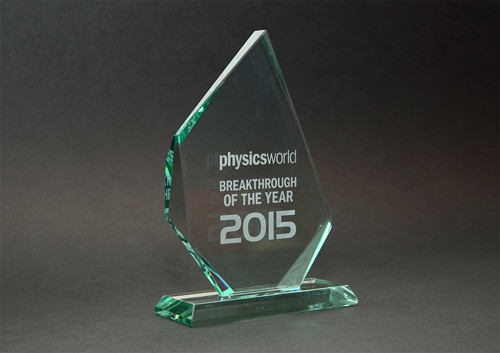
Glittering gong: who will be taking home this year’s Breakthrough of the Year award?
By Hamish Johnston
This week marks the beginning of awards season here at Physics World and we have been polishing the 2015 Breakthrough of the Year trophy in anticipation of presenting it to the winner on Friday 11 December.
The winning research must have been published in 2015 and also has to meet four criteria:
• fundamental importance of research;
• significant advance in knowledge;
• strong connection between theory and experiment; and
• general interest to all physicists.
Last year’s ESA’s Rosetta mission was our winner for the remarkable feat of landing a spacecraft on a comet while acquiring a wealth of scientific data. In 2013 the IceCube South Pole Neutrino Observatory won for making the first observations of high-energy cosmic neutrinos. But please don’t think that all the winning research is done by large collaborations. Aephraim Steinberg and colleagues from the University of Toronto were winners in 2011 for their bench-top experimental work on the fundamentals of quantum mechanics, while the inaugural prize in 2009 went to Jonathan Home and colleagues at NIST for creating the first small-scale device that could be described as a quantum computer.
We also commend nine runners-up each year who we believe deserve recognition for their contributions to physics.
So who do you think should win this year?
Trackback: Who will win the Physics World 2015 Breakthrough of the Year? – MyPhysNet